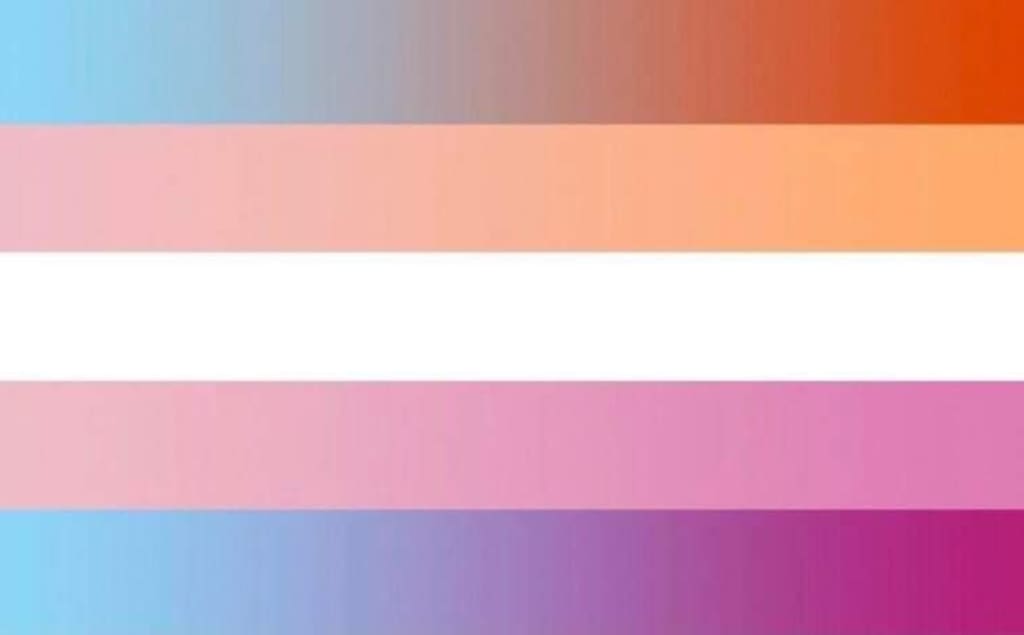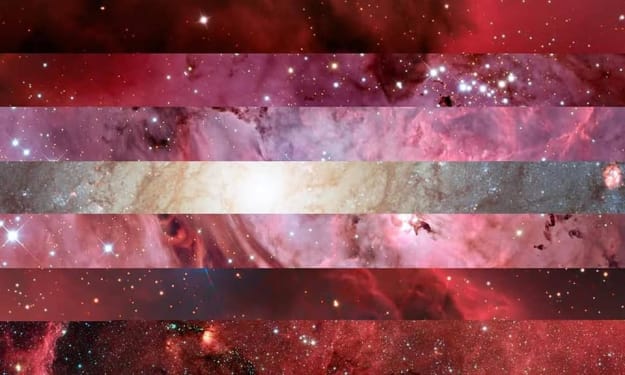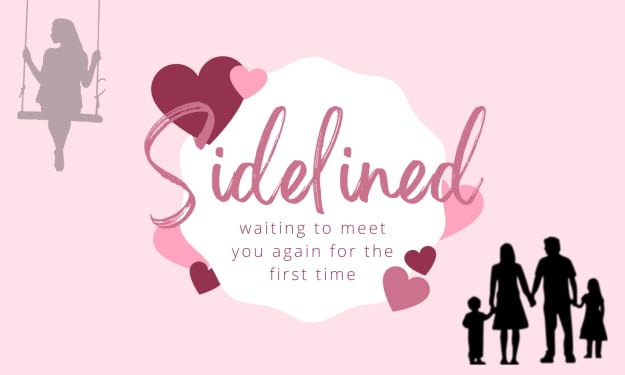Feminism, For Her, And Him, And Them: VENUS VALLEY Gets Intersectional
Queer Philosophers’ Forum, pt. 19

I’m still here, my queerly beloveds; the finale section of this LGBTQIA+-philosophy-book-in-progress is now in its third chapter! And it’s a bit of a reading recommendation list, among other things; which, if you’ve been here since we started, you’ll know is where we started. If you’re coming in late, all you need to know is that you can debate, discuss, question, contribute, to each chapter of this book, as I release it in blog form, to your head’s and heart’s content; and your insights and inputs will be my edits, as this blog becomes a book; so the final finished book will be us, not just me. This chapter of things I’ve found while I’ve been working on this project, and will probably slot into place through the finished book, actually (hopefully) works as a taster of what it will be, if you’re new here. Welcome, just in time before we nearly finish, to Venus Valley: Queer Philosophers’ Forum.
In the first part of our feminist finale (which you can catch up on by clicking HERE), we led in from our Star Trek chapter (which you can read by clicking HERE - and consider pretty much everything Star Trek to be recommended watching) by looking at the late Trek actress Kirstie Alley’s journey from SCIENTOLOGY to starring in A Bunny’s Tale (recommended watching!) the biopic based on the life of Gloria Steinem - who got inside the Playboy mansion to expose the girls’ working conditions there, and also wrote Marilyn Monroe’s biography (recommended reading!). In the next part after that, you can read by clicking HERE how we were critical of the “GENDER CRITICAL” by showing what a list of logical fallacies it is, to call it “feminist” to accuse trans women and nonbinary femmes of cheating at sports just for being trans or nonbinary; to treat their trans and nonbinary natures as if they’re suffering from a medical disorder; or to discount their neurodivergent viewpoints as if that means they’re not valid or valuable.
So now we’ve discounted both Scientology and “gender critical” beliefs as two things feminism is not, let’s have a look at what feminism is: INTERSECTIONAL, is what it is!
Standing for women’s equality includes standing for trans women’s equality, and black women’s equality; which means, standing for women’s equality, trans equality, and black equality, aren’t three separate things: like this feminist finale trilogy chapter of Venus Valley, they’re three sides of the same thing. That, in a nutshell, is INTERSECTIONALITY. Feminism means challenging some of the ways people think “it’s always been”; people who are subservient to the idea that it’s “how it always will be”; so they don’t fight it, because they think they’d be fighting the majority’s “normal/natural” ways of being and doing things. Looking at it from the outside, to see it through the eyes of minorities who are treated like outsiders and outcasts (to recap on what we’ve covered in some early chapters) is CRITICAL THEORY. If your outsiders’/outcasts’ perspective is a queer perspective, that’s QUEER THEORY; racial minorities’ perspectives, that’s CRITICAL RACE THEORY. To have your closed eyes opened up to these things, that’s “WOKE”. The fact that feminism fights for women in all these groups, and welcomes women’s perspectives from all these angles, is INTERSECTIONALITY.
To show you a bit more what I mean, I’m going to split the rest of this chapter into 3 bits, to cover 3 things I’ve found since I’d already started writing, which I would have included in the early chapters if I’d known about them then. So the last of this trilogy of feminist finale chapters is a little mini trilogy in itself. Get yourself a fresh cup of tea and settle in, I’ve finally finished recapping earlier chapters and got to the point of this one!
PART 1: “The ‘T’ In LGBT+”. This book, left out of the first recommended reading list I gave you, by psychology PhD holder and content creator on the Tube of You, Jamie Raines (Jammidodger), belongs in a feminism chapter even though he’s a trans man, in a way that’s a perfect example of intersectionality. Jamie transitioned first socially (style and home life) and then medically (hormones and surgery) starting when he was a teenager; developed his PhD research based on what he learned about trans wellbeing along the way; and wrote this book to speak to teenagers who are now where he was when he started, including the voices of his fellow trans and nonbinary kids and adults alongside his own, to answer all you can ask about transition, both the social side and the medical matters. It encourages you, if you’re defined by people around you as feminine, to accept your masculinity however’s right for you; that’s feminist. It encourages you, if you’re defined by people around you as masculine, to accept your femininity however’s right for you; that’s feminist. It features his wife Shaaba’s voice - also a psychology PhD and Tube of You creator - alongside his own, whether she agrees or disagrees with him; that’s feminist. Her voice empowers all genders with ways to be allies to their trans and nonbinary friends and family, especially when it’s in opposition to any bigotry in their own community; that’s feminist. It gives you guidance how to deal with other cultures’ attitudes towards the femininity of those who they expect to be masculine, and the masculinity of those who they expect to be feminine; that’s feminist. Feminism can be good for men, and men can be good for feminism: Intersectional feminism.
PART 2: Mrs. King. Ignorantly left out of my chapter where I tried to feature the voices of women of colour and racial minorities, is Coretta Scott King; I could introduce her as “wife of Rev. Dr. Martin Luther King Jr.”, but I’d rather introduce her on her own terms, as a fighter for both race rights and queer rights side by side. American actor Jonathan Majors said his partner, actress Meagan Good, “held him down like a Coretta.” Her daughter, Bernice King replied, “My mother wasn’t a prop… my mama was a force.” Coretta’s first show of support for gay rights came in 1983, when she endorsed a senate bill that would have amended the civil rights act to ban discrimination of sexual orientation, while fighting for the inclusion of gay activists in the 20th anniversary celebration of the black civil rights March on Washington. The March’s national director, Baptist church minister and politician Walter Fauntroy, tried to bar them from speaking, saying their presence was “divisive” and queer rights were as legitimate as “penguins’ rights” (ironic since penguins are one of the species with naturally occurring same sex coupling!). After a very public 2-week fight including a sit-in at Fauntroy’s office by The Coalition of Black Gays, Audre Lorde - queer, black, disabled woman poet and professor - was given 3 minutes to speak at the rally at the Lincoln Memorial: “We marched in 1963 with Dr. Martin Luther King and dared to dream that freedom would include us, because not one of us is free to choose the terms of our living until all of us are free to choose the terms of our living. Today the black civil rights movement has pledged its support for gay civil rights legislation, and today we march again, lesbians and gay men and our children standing in our own names together with all our struggling sisters and brothers here and around the world.” Through the 80’s when Reagan’s regime refused to deal with the AIDS crisis - in fact they actually courted the conservative Christian camp who were convinced the epidemic should be actively celebrated as God’s judgement on “perverts” - Coretta and her assistant, openly gay man Lynn Cothren, welcomed the queer community into the King Center. After the Supreme Court ruled “engaging in sodomy” was not a constitutionally protected right, Coretta spoke out at the 1986 New York Gala for the Human Rights Fund; in 1994 she, Senator Ted Kennedy and Rep. Barney Frank, together introduced the Employment Non-Discrimination Act; in 1996 she spoke at Atlanta Pride: “The church burners and the gay bashers drink from the same poisonous well of hatred and male violence and very often they are one and the same”. In 2002 when a queer Morehouse College student was attacked, Coretta called for publicly funded education against “the toxic virus of homophobia”. In 2004 Coretta publicly denounced George W. Bush’s support for a constitutional amendment banning gay marriage, “a form of gay bashing” that would “do nothing to protect traditional marriage.” In 1998 she responded to pushback even from those within her own movement and even her own family, in a speech to Lambda Legal Defense & Education Fund’s 25th anniversary celebration in Chicago: “I still hear people say I shouldn’t be talking about the rights of lesbian and gay people and should stick to the issue of racial justice. But I hasten to remind them Martin Luther King Jr. said ‘injustice anywhere is a threat to justice everywhere’.” Coretta died in 2006, interred with her husband. (Her old opponent Fauntroy, meanwhile, spent 4 years as a fugitive from charges of tens of thousands of dollars’ worth of fraud!)
(Credit where it’s due for most of the info in this paragraph, to Amanda W. Timpson, “public queer historian, recovering TV executive, sass factory”, and creator of the social media content Yesterqueers - recommended watching!)
Part 3: Feminism vs. Nationalism. Here’s something I hadn’t quite thought about enough to put it into words since I started, and it pretty much sums up a lot of what I’ve said! Sara Farris, senior sociology lecturer at Goldsmiths, University of London, recently wrote “In The Name Of Women’s Rights: The Rise Of Femonationalism”. Influenced and inspired by the similar book “Terrorist Assemblages: Homonationalism In Queer Times” by Jaspir Puar; all about how anti-Islam campaigners recruited voices from the LGBTQIA+ community to their side, by playing on how some Muslim-in-name countries were attacking gay rights. Sara Farris argues that feminism can be swept up in the same wave, as black and Muslim men are attacked and accused as bad husbands and fathers, oppressing and interfering with black and Muslim women’s fitting in to western society as “good wives and mothers”. From case studies in France, Italy and the Netherlands, Farris is concerned about the “convergence” of “FEMOCRATS” - female or feminist bureaucrats - with NATIONALIST (one master culture takes priority over multiculturalism) and NEOLIBERAL (freedom of the economy takes priority over fairness and equality) activists; and asks whether it’s deliberate or manipulated. Where, she asks, are the actual voices of black and Muslim women in all this? Do they actually want to integrate into white western ideas of what makes them “good wives and mothers”? And isn’t there more sexism and racism in thinking black and Muslim women need white Christian men to “save” them? Are we headed back to what motivated the modern western Christian invasions of ancient native African, Asian, Australian and American nations, under the notion of “civilising” the “savages” by bringing them under the authority of the Bible? To the WHITE SAVIOUR stereotype of sci fi and fantasy? (What would those poor primitive people have done if Indiana Jones/Captain Kirk hadn’t come sweeping in!) Women, she argues, don’t need breaking out of what we think is bad, or bringing in to what we think is good - they need encouraging, empowering and enabling to speak with their own voices, and stand with their own choices, within or without their own communities and societies.
As Audre Lorde put it: “The master’s tools will never dismantle the master’s house.”
It’s not more, or less, feminist, to be a wife, a worker, a witch, a warrior, or a worrier: it’s feminist to be able to be whichever one you choose to be.
~*~
To subscribe to read the final chapters and re-edits of earlier ones, click HERE;
To join the group on the Book of Faces where you can debate, discuss, question, contribute, and give your insights and inputs that will become my edits, click HERE;
And if you’re able and happy to generously donate and contribute something, no matter how big or how small, to support this blog becoming a fully finished book, I’ll think you’re amazing if you click HERE.
About the Creator
Mx. Stevie (or Stephen) Cole
Genderfluid
Socialist
Actor/actress
Tarot reader
Attracted to magic both practical & impractical
Writer of short stories and philosophical musings






Comments (1)
This is one of my favorite chapters to date. Parts 1 & 3 were stellar, encouraging & edifying. But Part 2, being reminded of all that Corretta did in support of the larger community warmed my heart & brought me to tears again. 'Tain't none of us free 'til all are free. Let the battle song continue!